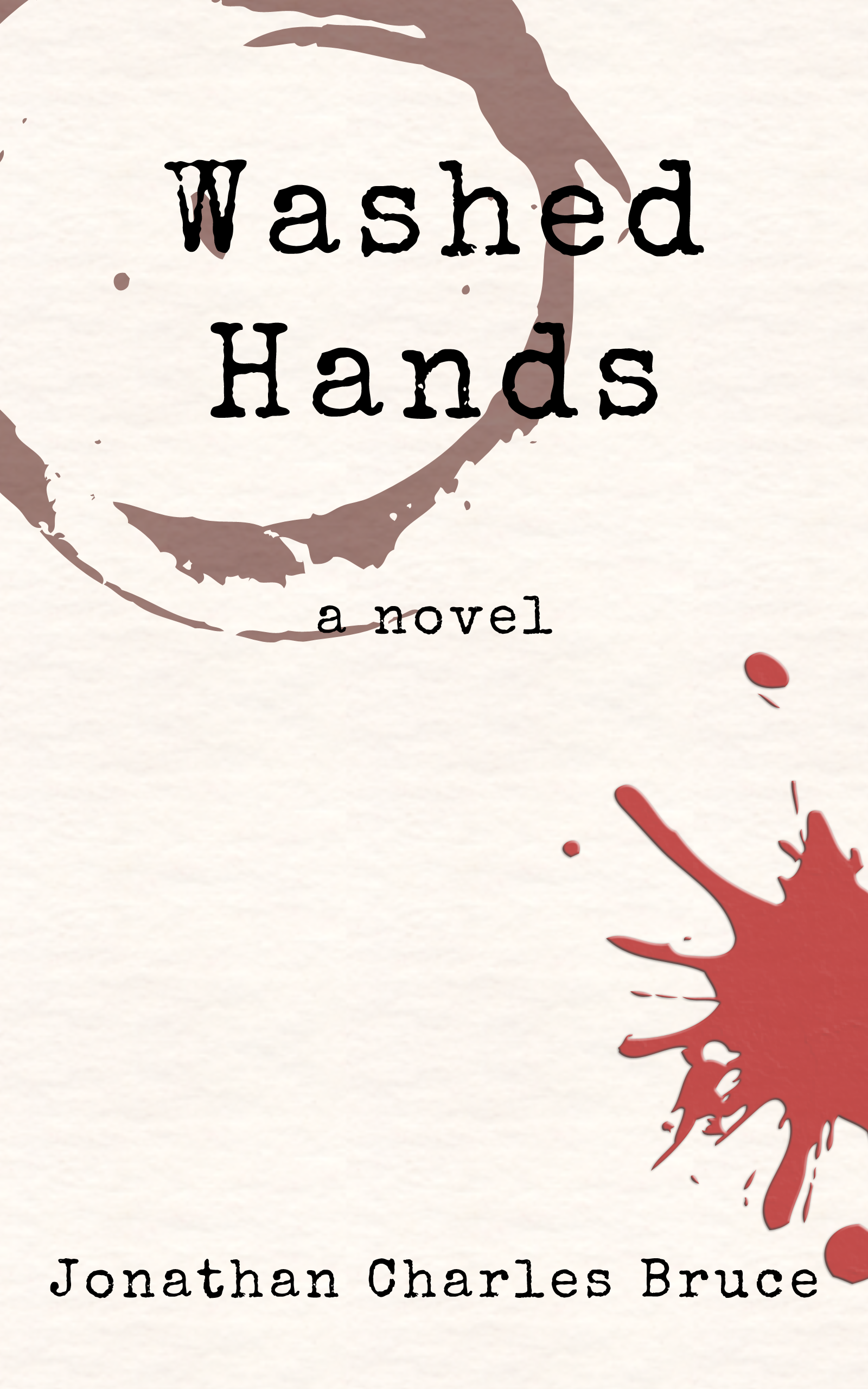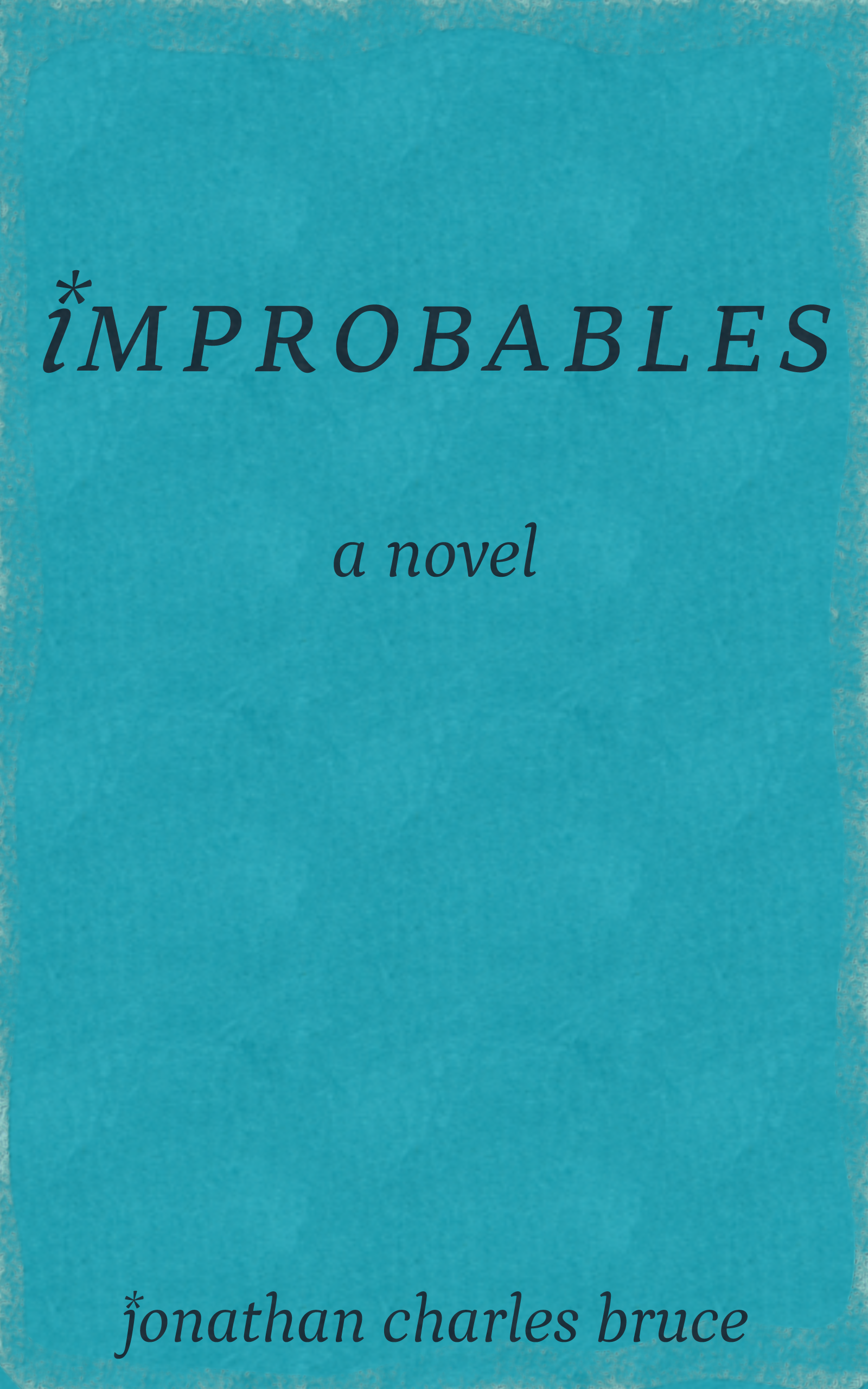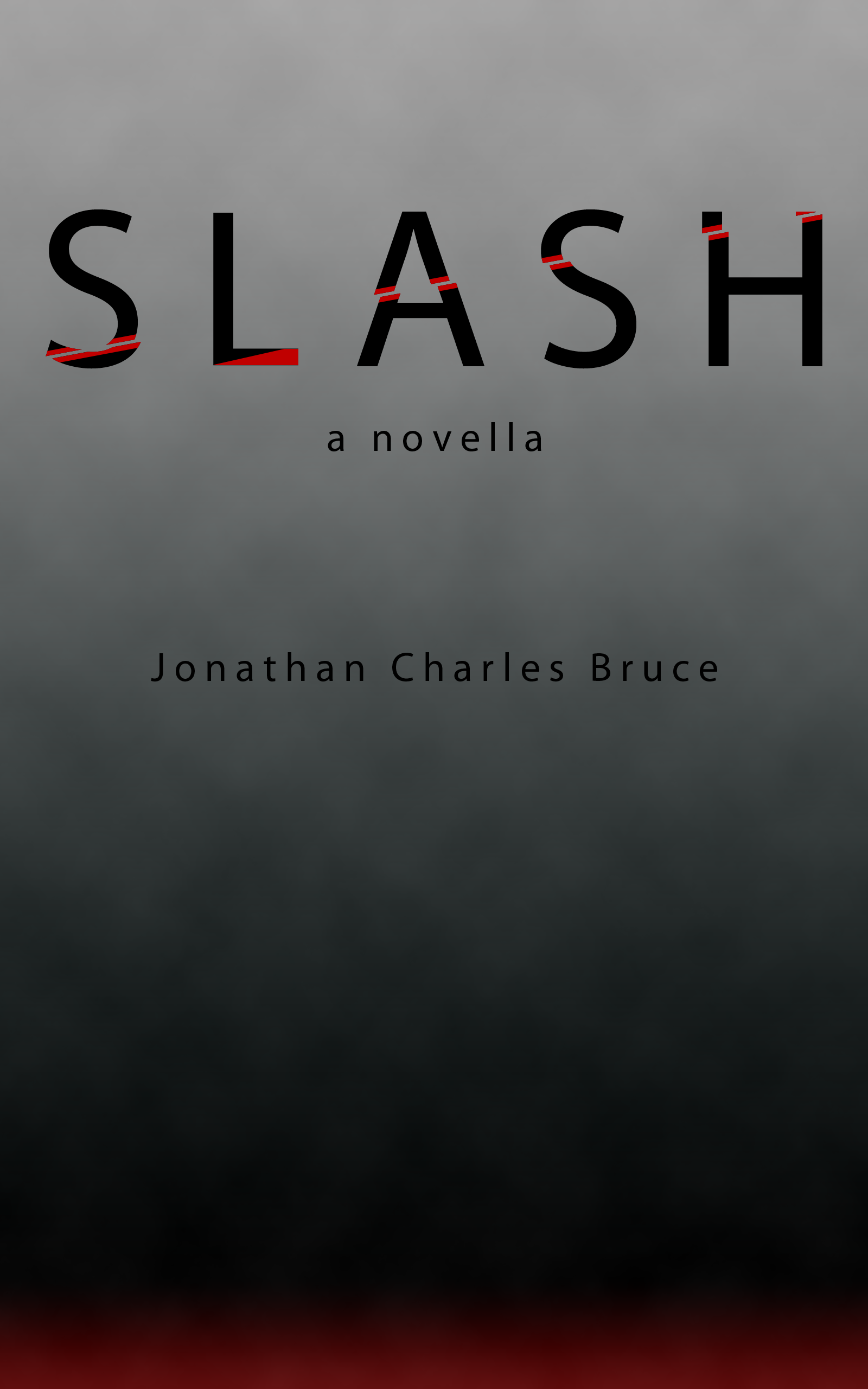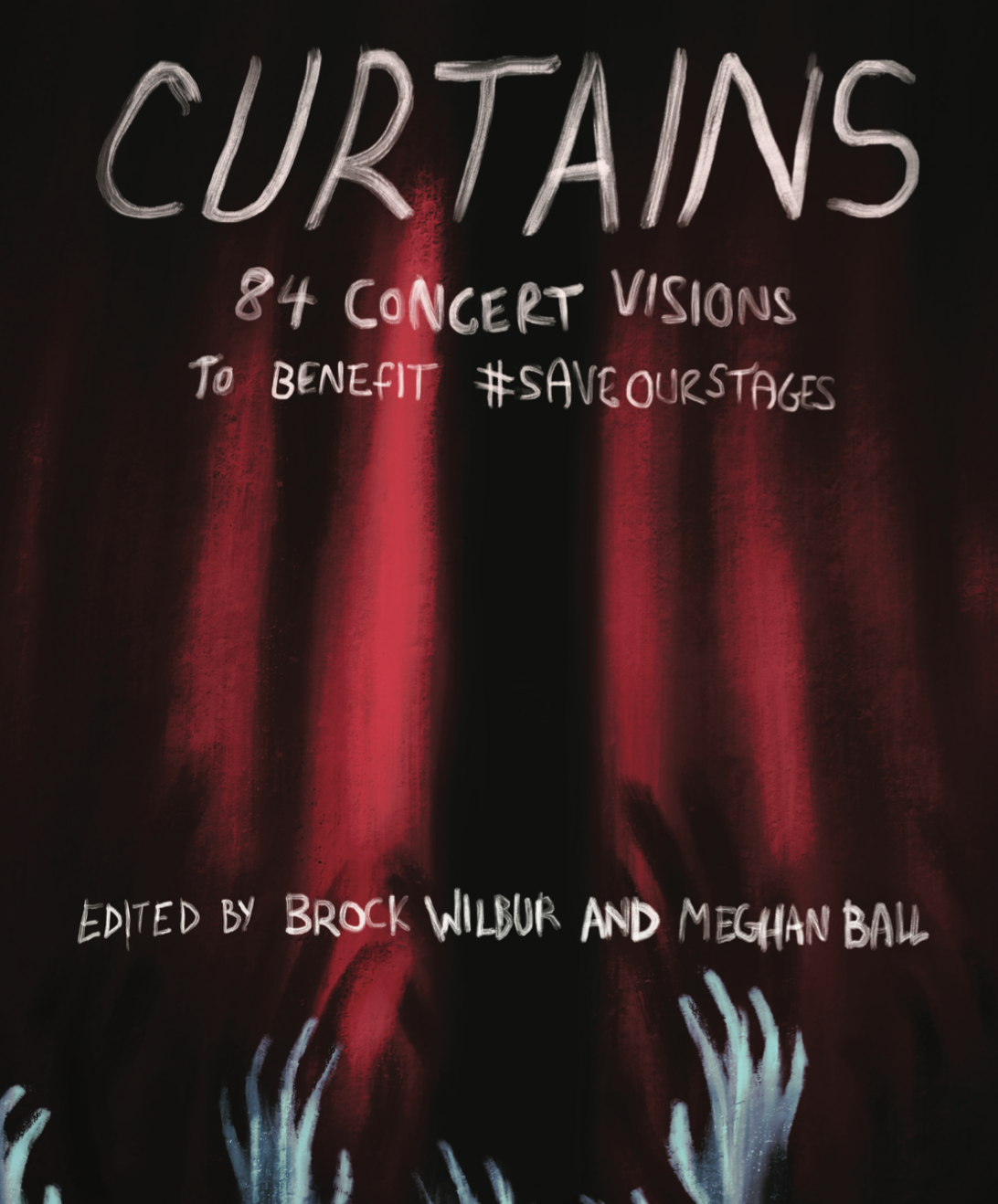Reflections on Another World
Otherworld was originally performed on November 5th, 2005. The next Saturday was our last performance - and a hugely successful one at that. We had grotesque monster makeup, a strong cast, and a series of really appreciative audiences (granted, they were students and parents, but whatever). It was the third play I’d written, and the first that wasn’t strictly a reinterpretation of a previous work.
I also spent much longer on that script than the previous two - it began on a legal pad in early 2005, scratched out in class when I should have been paying attention. The first draft had one less main character, a few different ‘rough draft’ creatures, but was pretty much the final product. I went back, added an older sister for Jean, refined the creatures to a definitive set that kept with the overall theme, and had it hammered out in time for September auditions.
I haven’t really gone back to Otherworld too much over the past several years. I mean, there were times, but for the most part I did my heaviest revising and editing in 2008, when I submitted it to the Copyright Office. Before then, I wrote a 450 page monstrosity of a film script (which works out to over seven hours worth of content). This version added a lot more things: I started naming the smaller creatures, dove into the pasts of all the characters, made stronger connections between the characters and the creatures, bulked up the mythology of the Otherworld, and added new events. The 2008 revision added a lot of the content from the flabby screenplay while tightening (believe it or not) the dialogue.
In all honesty, this was the first thing I wrote that I wanted to go back to. Not in a Saw-esque “WE NEED A NEW ONE EVERY YEAR”, but in a “I’m having fun with this, let’s see where this goes” kind of way. But, things being what they were at the time, I was “encouraged” to bugger off and do other things... like a Robin Hood script that I didn’t really want to write.
Anyway, this is the first time in about four years that I’ve gone through the script in any meaningful way. While I didn’t do any additional revisions, this has been kind of a nice trip down memory lane. A few reflections do stand out. I’ll try to keep spoilers to a minimum for those of you who are lazy and hate the country you live in and haven’t read it yet:
If you read it, it is pretty apparent that the story borrows heavily from Silent Hill in the dual-reality chock-fulla-monsters thing. And why not? I loved the games, and they were a huge source of inspiration (the movie, not so much). This was my first real attempt at horror in any meaningful capacity - it made sense to borrow from what I perceived to be a successful plot point (two worlds, one light and one dark) and put my own spin on it. Like the game, there were also different endings (although the one in Act Three is canonical). I wrote multiple finales for the production, so that there were a total of ten ways the story could conclude. If I could have found a way to work in audience participation to figure out which ending to do, I could have completed my loving ode to an ode in the best way possible. It would be either that or just yelling at the audience to go play Lone Survivor which - if memory serves - was not a thing at the time.
Back on track, I could, at this juncture, claim that I got the idea from the same source materials that Silent Hill got its inspiration from. Things like The Mist, Jacob’s Ladder, Phantoms, and Alice’s Adventures in Wonderland. But that would be doing a tremendous disservice to the men and women who made Silent Hill so wonderfully creepy. The game was a Japanese take on Western horror - an homage to the greats of the genre, if you will. Otherworld is a western take on a Japanese take on Western horror. If I were feeling presumptuous, I’d say it was quite worldly (didja get it?). Rather, I would say that if it were written better.
As much as I love Otherworld, the word ham-fisted comes to mind. Part of that stems from my style at the time. But another part of it is the medium. Stage plays do a lot well, but they certainly suffer in the ‘show, don’t tell’ aspect of storytelling. Shakespeare usually had dudes announce any activity that wasn’t one, talking or two, basic gesturing. The beginning of Act Two of The Crucible is basically the brain-damaged main character prattling about how it’s spring for a page and a goddamn half. It’s a necessary evil to have things - even fairly blatant things - spelled out for the audience. If it was good enough for the Bard of Avon, it’s good enough for me. But seriously: screw Arthur Miller for that boring-ass anti-McCarthy play.
I can’t really say that the only reason for dialogue-related awkwardness is because Otherworld is a play. At least some small part of it is due to the fact that, although I appreciated my audience’s capabilities of grasping such advanced concepts as ‘The heroes shouldn’t let the monsters eat them,’ this really isn’t an average stage production. I mean, there’s fucking monsters. Oh, shit. Why are there monsters? What exactly is going on? I’m sure if you gave me the same components now I’d come up with something different and a much more effective (and short) way of relaying information to the audience.
But then the problem becomes a matter of length. There needed to be a plot to string together set pieces. And plays tend to include a lot of yapping. So the end of Act Two sets up the action events for Act Three, which then culminates in a villainous monologue. Yes, the bad guy monologues - despite being a manipulative evil genius, the guy likes the sound of his own voice. Where’s the harm in that, other than more explanation?
I blame that on the medium and my own inability to rein things in.
Moving on to other things, I think Otherworld started the trend of me killing off my favorite characters. Although I am quite fond of those who did make it out alive, my beloved monster-killing badass was one of the tragic casualties. To be fair, I’m not sure why I do this. Maybe there doesn’t need to be a why. But suffice it to say if I ever have to stand trial for what I’ve done to the people I like in my work, it isn’t going to be pretty.
On the flip side, I did try to make each death carry some meaning. I think only the first on-stage murder/death/stabbity had no greater purpose. But by that point in the play, we were almost done with Act Two. We had spent an hour with these characters, getting to know them, getting invested in the overall mystery. When it happens, even if you don’t like the person who dies, it’s finally revealed just what’s going on in one moment of violence. It’s not just some no name extra getting run through - the character has just as many lines as the others up to this point.
You see, one of my biggest issues with horror movies in general is the senseless death aspect. In most movies with ambitions of horror, characters will be picked off pretty much only to increase the body count and... I dunno... the scariness, I suppose. But ultimately, there’s no larger scheme of things. Characters don’t usually die because they saved their friends - it’s because they were horny and stupid. I’m not saying that every death should be a noble sacrifice, but every death should mean something to the audience. Senseless killing only works if they give a shit to begin with.
Let’s carry this thought to a logical conclusion, here. I hate to be the bearer of bad news, but a lot of people die in pretty horrible ways every day. All over the world. The deaths are tragic, no doubt. But the vast majority of people will continue onward without a second thought. What has the potential to make this horrific is our own relationship to the dead.
Reading about someone half a world away with no relation to us getting hit by a train is a tragedy. Hearing Lenny at work was flattened walking across the street to get Taco Bell is tragic and a little scary - it could have been you making that run for the border. But walking with your best friend across the street and you stop to tie your shoelaces only to look up and watch them be flung lifelessly in the air by an out of control bus is fucking horrific. While watching a stranger die is traumatic and horrible, watching someone you know and have some emotional investment in killed in front of you is genuine horror - especially if the bus slowly pulls a u-turn and heads right toward you!
But enough about my spec script for Speed 3: Demon Bus.
Horror movies, in general, tend to believe that proximity is the same thing as caring. They subscribe to the belief that relating to the characters is a waste of time and effort. Why, if we see just any old person get hit with an axe, it must be scary, right?
No. No it isn’t.
Awful, sure. But not scary.
Now if we see someone we’ve gotten to know and care about get hit with an axe, then it’s scary. Namely because we’ve had time to get to know them, understand them, and want them to succeed. I’ve seen every Friday the 13th and I can’t tell you any of the victim’s names. Why? Because they were basically meat piñatas. Their ticket was punched before they had a chance to scream. What’s the point in even bothering to know their name if you know that they’re going to get their faces eaten off by the second act?
Otherworld, then, is really an ensemble production. The protagonists almost all get equal stage time in the first two acts. It’s really only in Act Three that characters start dropping like flies until only a couple remain. That lack of a definite main character helps, at least in my opinion, keep the sense of dread going. Anyone can die in the last act - and most of them do. Halfway through, of course, when the already single-digit humans are reduced to a handful, it becomes clear who the main protagonist is. But until that time, it’s anyone’s game.
Another thing I noticed is that I prefer slow-burn horror. I really do like things to build up, with hints of something beyond the veil leading to an unstoppable breaking point. In Otherworld, everything builds and builds until the last ten minutes or so of Act Two. The audience has been teased with the merest glimpses of the things stalking St. Michael’s Hospital up to that point. When they finally get a clear look at what’s happening, all hell breaks loose (if you’ll pardon the expression). Things may have been bad before, but the last act is a desperate bid to see who survives and who isn’t fortunate enough to live through it.
I guess the last thing I’d like to reflect on is the fact that this was performed at a high school. I’m sure there’s lots of people who would be up in arms about corrupting innocent teenagers and all that. I don’t see too much point in trying to defend myself, because the “THINK OF THE CHILDREN!” crowd tend not to be the best listeners. Suffice it to say, here are a couple of things to consider:
1) Macbeth is taught in high school and deals with regicide, infanticide, insurrection, and casual murder. Death everywhere. Just because it’s in ye-olde gobbledegook English doesn’t make it any less violent, shitheels. Done right, that’s some R-rated stuff - even done wrong it traipses along some pretty messy issues. But hey! Keep thinking your kid is innocent and untainted by the outside world.
2) Most teenagers can tell the difference between fantasy and reality. If yours can’t, well that’s less my fault than yours as a parent. More to the point, though, is that if you can’t, you shouldn’t be having kids in the first place.
In the end, Otherworld, as much as I love it, is still just a doofy little horror story. It did spawn an unperformed sequel which is much better in my opinion, but that’s a future update. The point is that I tried something new and I had a lot of fun doing it. It may not be the most effective story, or even the slightest bit scary, but it turned out much better than I ever could have hoped. And after the final bow in front of a cheering audience, sometimes that’s all that matters.
And is it just me, or does the trailer for the new Silent Hill look like they missed the point again? But hey - maybe they’ll at least have fun with it this time.
< PREVIOUS ENTRY • NEXT ENTRY >
Advice • Fiction • Gaming • General Musings • Reviews





